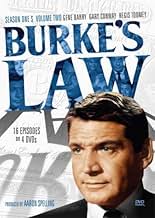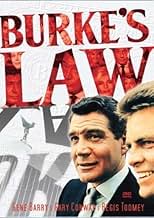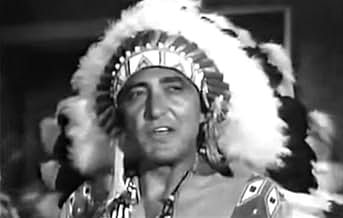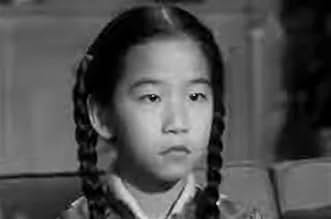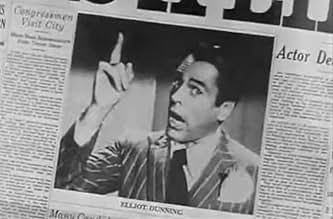PUNTUACIÓN EN IMDb
7,3/10
1 mil
TU PUNTUACIÓN
El capitán millonario de la división de homicidios de Los Angeles es conducido a la escena del crimen en su Rolls-Royce de 1962 por su leal chofer.El capitán millonario de la división de homicidios de Los Angeles es conducido a la escena del crimen en su Rolls-Royce de 1962 por su leal chofer.El capitán millonario de la división de homicidios de Los Angeles es conducido a la escena del crimen en su Rolls-Royce de 1962 por su leal chofer.
- Premios
- 1 premio y 2 nominaciones en total
Explorar episodios
Argumento
¿Sabías que...?
- CuriosidadesFor the show's final season in 1965 - 66, the format was completely changed in order to capitalize on the popularity of spy shows like "El agente de CIPOL (1964)," with Amos Burke himself becaming a secret agent. The title of the series was changed accordingly: "Amos Burke - Secret Agent." But the new format proved unpopular, and the show was cancelled.
- Créditos adicionalesIn the opening credits, the title of the show was always announced by the voice of a woman saying, VERY seductively, "Burke's Law".
- Versiones alternativasSome "Amos Burke, Secret Agent" syndication prints retain that title sequence, but with the title changed to "Burke's Law" and a male announcer speaking the title (as with the original "Amos Burke, Secret Agent" episodes).
- ConexionesFollowed by La ley de Burke (1994)
Reseña destacada
TV actors, at least in the old days when they were placed in a separate class from movie actors, often seemed to be clones of their movie brethren. Some were singular in their associations. Nehemiah Persoff seemed to be the Edward G. Robinson of television, getting similar roles and acting them in a very similar manner. Carolyn Jones was the Bette Davis of TV, even to the point of playing a set of sisters one of whom is a murderer on Burke's Law. Other's had company in their pursuits. The western stars were all either John Wayne or Gary Cooper, with an occasional Jimmy Stewart or Henry Fonda thrown in, (including the real thing on "The Deputy"). There were a whole selection of Clark Gables, including John Russell, Rory Calhoun, Richard Egan , Robert Lowery and others. There were plenty of Brandos, including Burt Reynolds, George Maharis and John Saxon. There were enough Rock Hudsons to fill a theater, with John Gavin, Tom Tryon and Gardner McKay coming immediately to mind. The blonde versions I call the "Redfords", a group of thoughtful , well educated types of which Robert Redford was one along with James Franciscus, Richard Chamberlain and William Shatner. They had varying degrees of success with Redford emerging as the head of the class.
Perhaps the most successful strain, however were the Cary Grants. Grant made an ideal model for the suave detective hero, able to be charming or tough as the occasion demanded. Craig Stevens was hired to play Peter Gunn specifically because of a strong resemblance to Grant. His tightlipped performance was not really very charming but it's surely how Cary would have played that character. Latern-jawed John Vivyan played a role that Grant had actually essayed in the movies, Mr. Lucky. He was competent at best. The heroes of the Warner Brother's detective shows were largely based on Cary Grant. Ephram Zimbelist Jr.'s Stu Bailey was a grant-style role with a lot more charm than Peter Gunn. Richard Long's Rex Randolph on Bourbon Street Beat was much the same. Anthony Eisley's Tracy Steele was a less convincing version of the same character on Hawaiian Eye.
But the best of the Grant clones was Gene Barry. He was male-model handsome, had good breeding and seductive whiskey voice. He was also TV's greatest reactors. He had a series of comic takes that was perfect for Amos Burke, who had to confront an unending series of eccentric subjects. Yet he could turn around and romance the ladies or get tough with the tough guys. And he was a good enough actor to hold up his end when the heavy dramatics intervened.
One wonders what the originals of these clones must have thought as they watched the boob tube in it's infancy.
Perhaps the most successful strain, however were the Cary Grants. Grant made an ideal model for the suave detective hero, able to be charming or tough as the occasion demanded. Craig Stevens was hired to play Peter Gunn specifically because of a strong resemblance to Grant. His tightlipped performance was not really very charming but it's surely how Cary would have played that character. Latern-jawed John Vivyan played a role that Grant had actually essayed in the movies, Mr. Lucky. He was competent at best. The heroes of the Warner Brother's detective shows were largely based on Cary Grant. Ephram Zimbelist Jr.'s Stu Bailey was a grant-style role with a lot more charm than Peter Gunn. Richard Long's Rex Randolph on Bourbon Street Beat was much the same. Anthony Eisley's Tracy Steele was a less convincing version of the same character on Hawaiian Eye.
But the best of the Grant clones was Gene Barry. He was male-model handsome, had good breeding and seductive whiskey voice. He was also TV's greatest reactors. He had a series of comic takes that was perfect for Amos Burke, who had to confront an unending series of eccentric subjects. Yet he could turn around and romance the ladies or get tough with the tough guys. And he was a good enough actor to hold up his end when the heavy dramatics intervened.
One wonders what the originals of these clones must have thought as they watched the boob tube in it's infancy.
- schappe1
- 18 ene 2003
- Enlace permanente
Selecciones populares
Inicia sesión para calificar y añadir a tu lista para recibir recomendaciones personalizadas
- How many seasons does Burke's Law have?Con tecnología de Alexa
Detalles
- Fecha de lanzamiento
- País de origen
- Idioma
- Títulos en diferentes países
- El superdetective millonario
- Localizaciones del rodaje
- Empresas productoras
- Ver más compañías en los créditos en IMDbPro
- Duración50 minutos
- Color
- Relación de aspecto
- 1.33 : 1
Contribuir a esta página
Sugerir un cambio o añadir el contenido que falta

Principal laguna de datos
What is the French language plot outline for El agente Burke (1963)?
Responde



